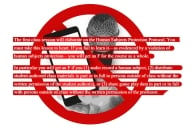You have /5 articles left.
Sign up for a free account or log in.
A push for standardization and basic foreign language skills has contributed to the departure of four members of the faculty and staff of the Arabic studies department at the University of Maryland, College Park since the summer.
"We were dictated materials," said Bouchra Araji, an instructor who resigned last month from the program, which now has six members of its faculty and staff remaining, according to its website. "They stripped us of all control of our classroom."
Araji said the main complaint that she has is how she and her colleagues were treated, though this grievance dovetailed with a shift in how the program operated once Valerie Anishchenkova became its new director at the start of the academic year. Araji and other former members of the faculty said that a freer-flowing classroom atmosphere that emphasized video, news articles and role playing -- tools meant to prompt students to interpret and communicate using the living language -- was replaced by one that greatly diminished such tools. In their place came a "drastic change to drilling," said Araji. "Your role was reduced to changing the name of the institution on the cover sheet of the exam."
The shifts at Maryland come at a time of debate over how best to teach Arabic, and a time when student (and the federal government's) interest in the language and culture has never been higher.
Ridha Krizi, who led the graduate program from 2005 until he he said he was fired this summer, described a similar shift in allowable classroom practice, from what was once an atmosphere of teaching and conversation that relied heavily on faculty who switched up their materials from one semester to the next, all of which was aimed at building verbal, real-world skill. "The material I used had to be alive and about topics that are alive in the present and in the minds of the students," he said. "These are the elements that make someone learn a language to the highest levels."
But Carol Mossman, director of the school of languages, literatures, and cultures at Maryland, gave a strikingly different account, saying that the new system actually lessens the emphasis on drilling. After characterizing the dispute as motivated by personalities, she said that it was Anishchenkova, who came on board as an assistant professor last year before assuming the directorship, who was responsible for adopting a more "communicative approach" to teaching the language. Such a philosophy brings with it "an emphasis on communication coupled with cultural context as opposed to translation and rote memorization," Mossman wrote in an e-mail, which she said was on behalf of both her and Anishchenkova.
But some students and faculty members pointed to recent cuts made to cultural clubs -- in calligraphy, film, music, and cooking -- and to the curtailment of conversation practice. The sessions once entailed three hours each week of one-on-one conversation with a native or fluent speaker of Arabic. This semester, these activities were reduced to one hour per week of group work.
Krizi also cited the recent success of the graduate program started under former director Alaa Elgibali. It is a two-year curriculum that teaches intensive conversational skills for the first 11 months, then sends students to Damascus, Syria for another 11. Krizi said enrollments and waitlists grew over the years -- though, it must be said, interest in Arabic surged elsewhere during that period.
He added that 80 percent of the program's graduate students scored a 3 or better on the Interagency Language Roundtable scale used by the Foreign Service and other federal agencies, which spans from 0 to 5. A 3 is described by the ILR as "general professional proficiency,” which, while it sounds fairly pedestrian, actually reflects a very high standard. One scholar at Maryland previously told Inside Higher Ed that most state standards for teaching Spanish at the K-12 level are generally equivalent to ILR levels of 1+ or 2. Krizi said that 60 percent of his students scored a 4. "A 4 is an educated native speaker. A 5 is a poet," he said. "If that speaks of a failed program, then I don’t know what success is."
Such scores matter because Maryland's Arabic program is classified as a Language Flagship site, which means it is among those receiving money from the U.S. Department of Defense's National Security Education Program. The funding program, which was launched in the early 1990s to develop American knowledge of foreign languages and cultures deemed to be crucial to national security, seeks to revamp and retool the way foreign languages are taught and learned in the U.S. -- by moving such instruction away from the grammar-translation method familiar to many from past decades, to one focusing on communication and verbal skill.
Krizi and others said that the more conversational approach that once reigned at Maryland lost steam as priorities and leadership changed. Written skills had grown weak in some critics' eyes. "From the start it was, 'Oh, students have a low level of grammar,' " said Krizi. "Of course they do if you give them sentences on scraps of paper and ask them to convert past tense to present tense. Of course they’re going to score badly."
As changes started to be made to the program, some members of the faculty and staff complained, students mounted a petition on Facebook and accounts of resignations and impassioned meetings on the future of the program hit The Diamondback, the student newspaper. One anonymous poster on a recent article in the campus paper defended the new regime, saying Anishchenkova and Mossman "realized how messed up the situation is and wants to actually 'teach them some arabic' some lazy students can't take it due to being extremely lazy! [sic]"
While the tensions at Maryland reflect arguments common to foreign language departments regarding the right pedagogy, the place of culture, and the proper emphasis on the vernacular spoken form of the tongue versus the more standard, written version, the fact that this dispute involves Arabic brings a special set of challenges, said Elizabeth M. Bergman, executive director of the American Association of Teachers of Arabic. "The written, formal form of the language differs from spoken Arabic at every level," she said. "Spoken Arabic differs from place to place, country to country, city to city, and neighborhood to neighborhood."
Bergman couldn't quite pin down the reason that Arabic held this unique status. At times, this tension has played out in pedagogy. Munther Younes of Cornell University has married the high, written version with the more colloquial verbal one in what he called "an honest reflection of what really happens in the Arab world."
Though Bergman was not familiar with the details of the program at Maryland, she said it would be a mistake to ascribe the roots of the dispute playing out there to anything specific to the teaching philosophies of Arabic.
More mundane, but nonetheless deeply felt, faculty rivalries may play a role -- one thing upon which those on each side of the issue at Maryland seem to agree. "Our grievances are partly related to the curriculum," said Araji, "but mostly a result of how we were treated as faculty."
This story has been changed to correct an error.








